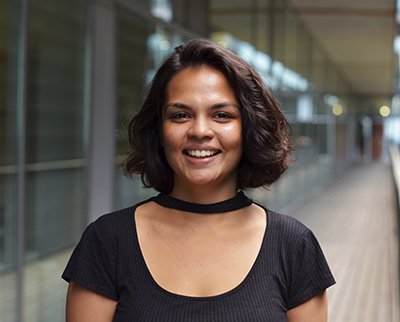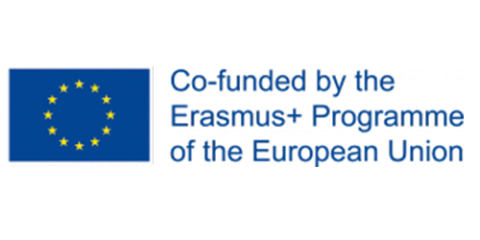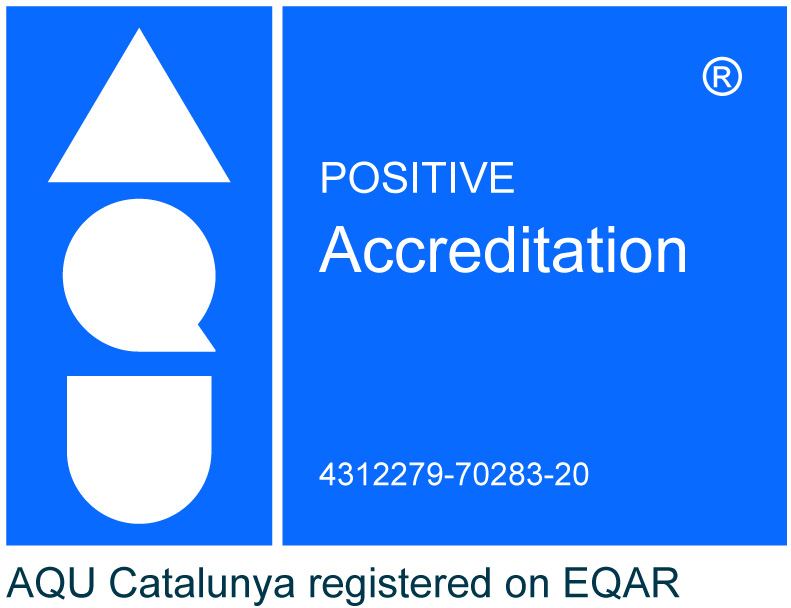University Master's Degree in International Cooperation in Sustainable Emergency Architecture
About the Master
This official degree prepares architects, urban planners and other professionals to develop and rebuild communities affected by the ever-growing impact of climate change, military conflicts, rapid urbanization and economic crises in both developed and developing countries. The one-year program provides students with the necessary theoretical and methodological background in order to develop an interdisciplinary approach and manage projects in cooperation and sustainable development ranging from the urban to the architectural scale.

They are already studying it
“Undertaking this master’s degree has prepared me to address urban and social challenges, on both a professional and personal level. The course not only provided me with the relevant knowledge for the humanitarian sector, but also gave me the chance to make industry connections and create international networks”.
Pratika Talegoankar
Reasons to study this master
- Wide range of job opportunities
This master course prepares both professionals and academics to critically intervene in the context of international cooperation and urban development. A mandatory internship period provides students with the connections and experience needed to secure positions in institutions like international cooperation agencies, municipal planning offices, research institutes and consultancy firms that deal with international cooperation, post-disaster and post-conflict contexts, foreign aid, human settlements, slum improvement and infrastructure development, among other areas. The master provides immediate access to PhD programs in Europe after approving the 60 ECTS due to its official accreditation.
- Interdisciplinary and interscalar approach
Meeting the complex challenges presented by the field of development requires holistic solutions that integrate interdisciplinary knowledge and range from the urban to the architectural scale, which is why our program counts on a prestigious roster of both local and international professors from diverse sectors and professional practices.
- Multicultural environment
Much like our faculty, our students hail from diverse countries around the globe, making for an exceptionally international and enriching learning environment and a valuable professional network.
Academic accreditation
Máster Universitario en Cooperación Internacional en Arquitectura Sostenible de Emergencia / Master of International Cooperation in Sustainable Emergency Architecture por la Universitat Internacional de Catalunya.
Partners
Additional information
Presentation
The ever-growing impact of climate change, military conflicts, rapid urbanization and economic crises present a clear need and opportunity for qualified professionals in both developed and developing countries. This Master degree is the only masters with a joint focus on international cooperation, sustainable urban development and emergency architecture. It provides students with the necessary theoretical and methodological background in order to develop an interdisciplinary approach and manage projects in cooperation and sustainable development ranging from the urban to the architectural scale.
Overview
Professionals involved in these areas need to understand that their role in the complex system of international cooperation is to seek holistic solutions that integrate interdisciplinary knowledge and citizen participation. It is essential to understand the physical, social and cultural substrate of the cities or territories in which we are going to intervene and analyze the context at all scales throughout the intervention process in order to establish a critical approach and proposals in accordance to their urban legacies.
The Master degree deals with three main topics: international cooperation, sustainable development, and emergency architecture. The program includes courses that will help implement and complete this necessary multidisciplinary approach with alternative planning, urban and architectural strategies that promote social cohesion. Students will be introduced to different contexts and situations so as to acquire the proper skills to develop a critical analysis and management capacity of complex problems. They will learn to maximize human resources to deal with and support local actors in post-disaster scenarios and tackle urban upgrading strategies in both developed and developing countries.
The Barcelona-based master is a second-year option within the Mundus Urbano master (Darmstadt University), forming part of the prestigious Erasmus Mundus European Cooperation Programme and making it the only Erasmus Mundus master offered by an architecture school in all of Catalunya. The Mundus Urbano program is a joint European Masters degree program offered by the following universities: Technische Universität Darmstadt, Università di Roma Tor Vergata, Université Pierre-Mendès-France Grenoble and the Universitat Internacional de Catalunya in Barcelona.
Objectives
The programme provides students with the necessary theoretical and methodological background in order to develop an interdisciplinary approach and manage projects in cooperation and sustainable development ranging from the urban to the architectural scale. Students will acquire the necessary knowledge to manage complex projects in international cooperation, emergency architecture, and sustainable development in which governmental and non-governmental institutions, beneficiaries and technical staffs are involved.
Prospective students
This program is aimed at university graduates from the following areas: Architecture, Landscape Architecture, Urban Planning, Urban Design, Engineering, Environmental Design, and Geography.
Admission calls
Application Process Deadlines for 2024-2025
Admission call for applications
Second call (CLOSED):
- Deadline to submit documents: February 26, 2024
- Interviews with shortlisted candidates: March 4 to 7, 2024
- Results communication: March 8, 2024
- Deadline to reserve place: March 22, 2024
Third call:
- Deadline to submit documents: May 3rd, 2024
- Interviews with shortlisted candidates (only if it is required): May 6th to 9th, 2024
- Results communication: May 13th, 2024
- Deadline to reserve place: May 27th, 2024
Accepted Students
- Reserve a place: Pay the deposit (20% of the total fee
- Legalise academic documents: Ask your programme advisor about specific instructions and procedures
- Enrollment fee: Pay the remaining amount (80% of the total fee)
- Enrollment date: 17th of July 2023
- Deadline to pay the enrollment fee: 31st of July 2023
- Submit paper copies of your legalised academic documents upon arrival in Barcelona
Prerequisites & admissions
General Information
Who can apply?
This programme is aimed at university graduates from the following areas: Architecture, Landscape Architecture, Urban Planning, Urban Design, Engineering, Environmental Design and Geography.
Required level of education: Graduate Degree or Bachelor’s Degree + University Master’s Degree. Minimum credit load: 240 ECTS
How to apply
- Register online
- Upload the following documents to the admission’s portal:
- Photocopy of your passport
- 1 passport-size photo
- Certified* copy of your Diploma**
- Certified* copy of your Academic Transcript
- A signed copy of the UIC Barcelona general conditions (download the form from the admission’s portal)
- A signed copy of the UIC Barcelona data protection form (download the form from the admission’s portal)
- A filled in and signed copy of the grant survey referring to any external grants/financial aid for which you may have applied (download the form from the admission’s portal)
- Motivation letter (in English; please include your Skype username in your signature)
- Portfolio (in English and pdf format; content and length up to the student)
- CV (in English)
- Certificate of English language level (minimum B2)
Optional:
- Recommendation letters
- Other certificates, diplomas or proof of work experience
* Document must have an official stamp from your university
** If you do not yet have your Diploma, please submit the proof of payment of the diploma issuance fees or a document from your university certifying your expected date of graduation.
Accommodation and Visas
Students are responsible for finding accommodation and acquiring visas.
Grants & financial aid
Grants
The University does not provide grants/scholarships for third year students. Those seeking financial aid are advised to consult other organisations.
Financial aid
UIC Barcelona holds collaborative agreements with various banking institutions to facilitate course financing with preferential conditions. Please check the terms and conditions for the current academic year in the following document:
Discounts
Members of the UIC Alumni and Friends Association are entitled to a 10% discount.
Additionally, certain collectives may be entitled to special discounts for certain programmes, which are specified in each case.
International mobility
Fieldtrip
Included in the tuition costs is an international fieldtrip, teaming up with local organisations on on-going projects, as well as students from RMIT’s MoDDD and local universities, this 10-day workshop provides a unique experience to put into practice the theory and tools gained during the master’s programme. Past fieldtrips have included: post-disaster reconstruction strategies in Ecuador, ecological and upgrading urban strategies in the favela Rio das Pedras in Brazil, analysing spatial justice on the Tijuana-San Diego border and urban refugee integration strategies in Thessaloniki, Greece.
Take a look at our previous fieldtrips in our blog




